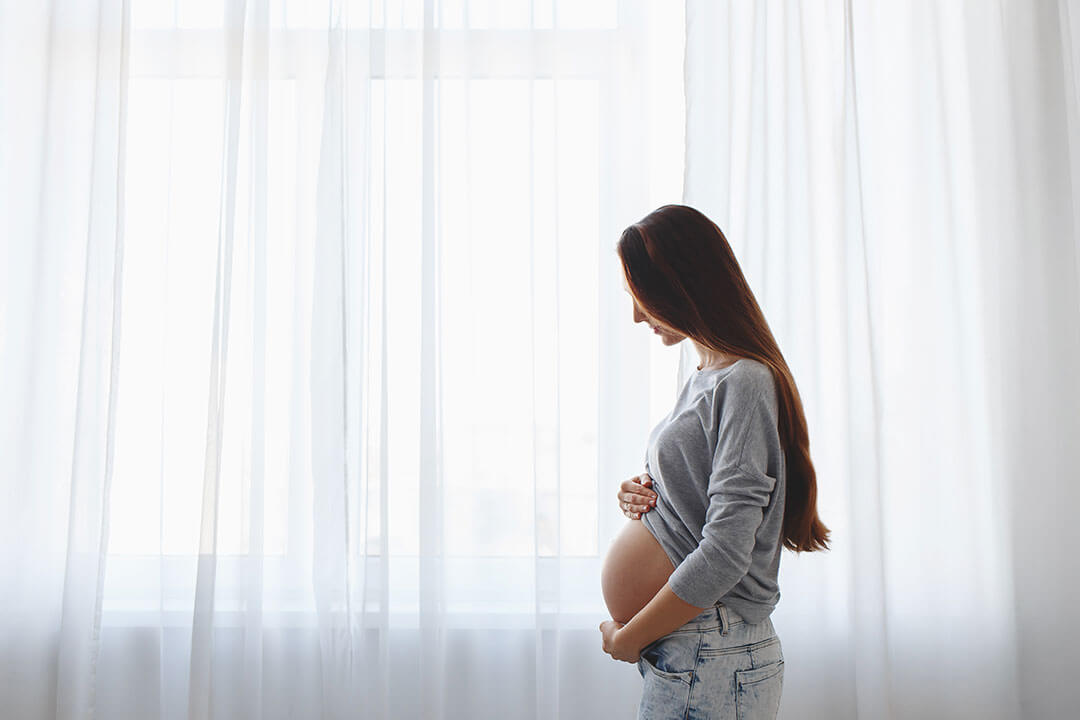Six Burning Questions About Pregnancy, Nutrition and Labour Pains

Organised by Mount Alvernia Hospital and Singlife with Aviva, the 90-minute Facebook ‘live’ session held on 18 January 2022 featured speakers such as Senior Parentcraft Specialist & Lactation Counsellor, Rita Francis, and Dietitian, Jacqueline Low. Here are six commonly asked questions posed by our participants.
Q: Are there any food that parents or mums should avoid during pregnancy? What about cheese, peanuts and seafood?
Jacqueline Low: I’m sure many parents would have read up on the things that are harmful to your baby. These include alcohol, which is not recommended during pregnancy although I do know of mums who drink. You’re basically taking a risk. There is no safe limit of alcohol that can be recommended, unfortunately. Also, raw food such as undercooked beef, half-cooked seafood and raw eggs. Some people forget that raw eggs come in many different forms. It is not just your soft-boiled eggs in the morning, which you should avoid as much as possible; it can be in mayonnaise or salad dressings too. With these foods, there can be a risk of salmonella which can be potentially harmful for the baby. With raw fish, there is a certain type of bacteria that can be passed to the baby too. Some mums also worry about taking certain types of fish because they hear about the mercury, such as large predatory fish like shark, swordfish, larger species of mackerel. But canned tuna imported to Singapore is completely fine.
Actually cheese, peanuts and seafood are completely safe to take. But do avoid cheese with live culture, such as blue cheese that has mould growing through it, or brie with mould surrounding it. Mozzarella on pizza is fine to take.
Q: Should pregnant mums control their salt intake?
Jacqueline Low: This is generally not so much of a concern unless you have a higher risk of preeclampsia; for example, having a family history of high blood pressure or diabetes. Then yes, I’d say you want to control your salt intake such as not taking too much pickled or preserved food. But using soya sauce or oyster sauce in your cooking is still fine.
How should mums having severe vomitting ensure they have proper nutrition?
Jacqueline Low: For many mums in their first or even second trimester, they are constantly throwing up their food. Most of them will be admitted to hospital for rehydration. During this time, it can be very difficult to get the proper nutrition for the pregnancy. You must try to remain hydrated, which is the main thing. Maternal and regular supplements, even in the form of a drink’ can really help. If you sip it very slowly over the course of the day, you’re not getting that bulk volume that makes you want to throw up. Other useful foods such as those high in vitamin B6 such as oats, pork and bananas, if taken regularly, are proven to curb nausea.
How do pregnant mums prevent Gestational Diabetes Mellitus (GDM)?
Jacqueline Low: Unfortunately, there are not many studies to show what you can do to prevent GDM. Some have linked pre-pregnancy diets such as, a very high fat or high-saturated fat diet, to (a) higher rate of GDM. But it is important to remember the main risk factors are age, being Chinese (race) also predisposes you to GDM, and if during your previous pregnancies, you had a larger (birth rate) baby above 4kg, that tends to predict GDM for your subsequent pregnancies. Your Body Mass Index, being above 30, also puts you at risk. Unfortunately, there is not much evidence out there to prevent GDM but definitely, looking into the amount of fat in your current diet helps. The studies also found that exercise is closely linked. So, maintaining some exercise in your daily routine during pregnancy would be great.
Especially when you first get diagnosed and are not seeing a dietitian yet, a lot of mums tend to cut back (really excessively) on carbohydrates. That’s also not a good thing. You need to have a balanced meal plan. You want to still be eating carbohydrates but not large amounts. For example, you should eat a big plate of Hokkien mee, washed down with a Coke. Maintain small intakes of carbohydrates throughout the day, at least two to three hours apart. Having small snacks in between meals is also recommended. No fasting or intermittent fasting or cutting out carbos completely.
Q: How do you recognise when you are in labour, especially for first-time mums?
Rita Francis: There are three signs of labour: show, regular contractions and eruption of (the) water bag. These three do not come in sequence. During pregnancy, the neck of the uterus is well sealed by a mucus plug. It loosens during labour and dislodges itself. As it comes long through your vagina, it looks pinkish, reddish, mucus plug, showing you that you are going into labour. Now if you ask me whether you need to rush down to the hospital – you don’t need to. Wait for other signs, like the baby is giving you a good kick and moving. If you call your gynae and say you are having a bit of show, and if you should rush down to the hospital, most of the time their advice will be to make sure the baby is moving and kicking well, and wait for other signs to happen. It may take a day or the next few days for you to go into labour.
Contractions give you a squeeze from the back. Some women are really sensitive and it even radiates down your thighs. What is ‘regular contractions’? From one contraction to another, the intensity of the pain gets more and more; the frequency is small and is narrower as well. Please come down to the hospital because you need a form of pain relief and most of the time, regular contractions synchronise with the opening of the cervix.
As for eruption of water bag, it either comes like a trickle or a sudden gush of water. Take a look at the amniotic fluid colour. Normally, it is clear. If it is greenish, it is not a very good sign as the baby may be distressed and has passed motion. When your amniotic fluid bursts, take note of the time and colour, seek advice from your gynae and you can come down to the hospital.
How do you differentiate Braxton hicks and real contractions?
Rita Francis: These are actual false contractions and they’re good as they prepare you for a real labour. Braxton hicks comes and disappears. It is further apart, it’s preparing you for the actual day. But if the contractions are very regular and you have the urge to pass motion; you’re very uncomfortable; back is aching and you do not feel good, and you are not due yet, do give your doctor a ring to make sure you do not go into premature labour.
For more insights, do watch the entire video at
https://www.youtube.com/watch?v=DWWSMZ2eebQ&t=301s.
This article is taken from our MyAlvernia Magazine Issue #46. Click here to read the issue on our website.



